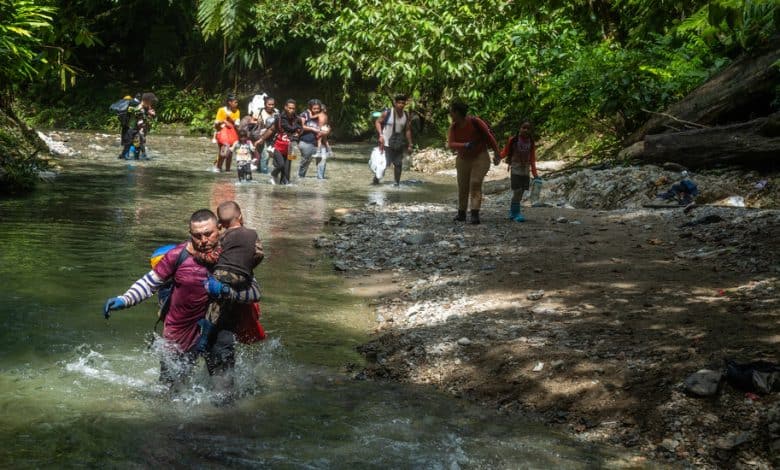Migration From South America Through the Perilous Darién Gap Resumes

Migration toward the United States through the perilous jungle known as the Darién Gap returned to normal on Friday, with hundreds of people from Venezuela, Ecuador and beyond entering the jungle following a roughly five-day pause in which migrants could not begin the trek.
The pause in this increasingly large migration flow was the result of an arrest operation led by the Colombian prosecutor’s office, in which two captains driving boats full of migrants headed to the jungle were taken into custody, where they remain, according to the prosecutor’s office. The office said that the captains had been transporting the individuals illegally, in part because the migrants did not carry proper documentation.
The captains worked for two boat companies — Katamaranes and Caribe — that for years have been playing an essential role in carrying migrants from the northern Colombia community of Necoclí about two hours across a gulf to the entrance to the jungle, which they must then cross to get to Central America and eventually the United States. The boat companies have been doing this openly — something documented extensively by The New York Times — and the arrests seemed to signal a shift in policy by Colombian authorities.
But in retaliation for the arrests, the boat companies paused transport, and the number of migrants waiting around in Necoclí and another exit town, Turbo, swelled quickly to several thousand people. That posed an enormous challenge to both towns, which do not have the resources or infrastructure to house and feed so many people for an extended amount of time.
The arrests of the boat operators came after months of pressure by the United States on the Colombian government to do more to limit or stop migration through the Darién. In a recent interview, Hugo Tovar, a Colombian prosecutor, said his office was working diligently, with the help of the United States, to investigate and arrest human traffickers.
On Friday, Johann Wachter, secretary of the Necoclí municipal government, said that the boat companies decided to restart operations after a meeting between representatives from the boat companies, local governments, the Colombian national migration office and other agencies, including someone from the U.S. Embassy in Colombia.
